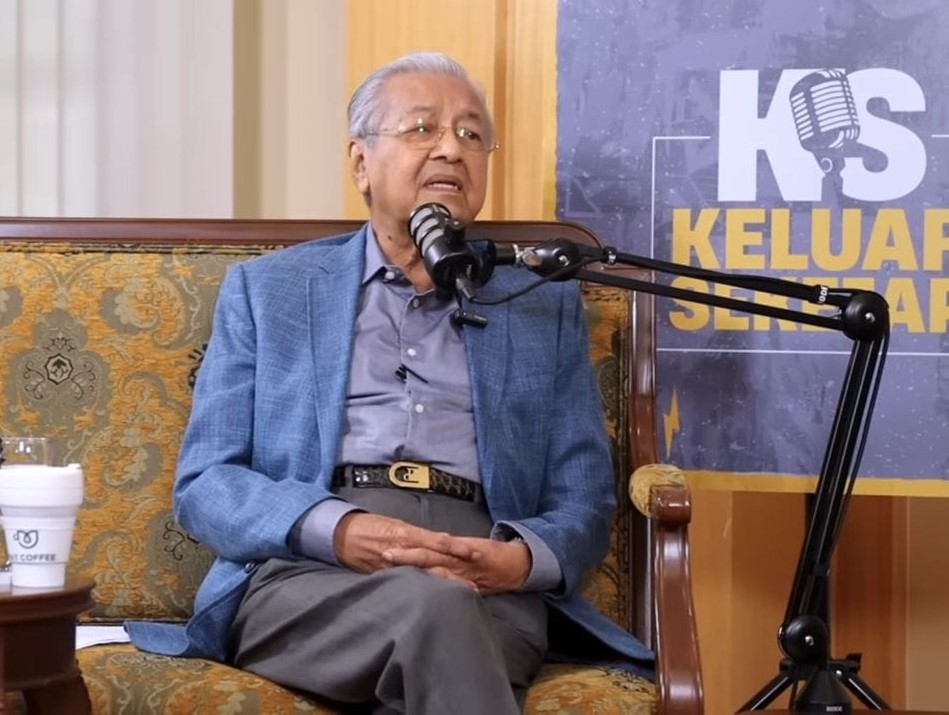“There was assimilation, for example people from Arab countries and India, they have been assimilated. (The Chinese and Indian immigrants) refused, not that we did not insist, but they looked down on us, we wanted them to become Malays. They didn’t want to be known as Malays.” — Dr Mahathir.
In a recent Keluar Sekejap podcast appearance, former two-time Prime Minister Tun Dr. Mahathir Mohamad made a number of controversial remarks, most notably regarding the assimilation of Chinese and Indian “immigrants” in Malaysia. He claimed that these communities, particularly during Malaysia’s post-independence era, resisted assimilation into the Malay culture, opting for integration instead to preserve their cultural heritage.
First of all, “immigrants”? Even after three, four generations? The not-so-subtle racism embedded in Dr. Mahathir’s characterisation of individuals who are citizens by operation of law as immigrants underscores a problematic perspective that he has long perpetuated — a divisive narrative that hinders the progress towards an unalloyed vision of Bangsa Malaysia.
Lest he forgets, the nonagenarian must be reminded that these three generations of “immigrants” have made substantial contributions to the nation’s development and form an integral part of the Malaysian identity.
With all due respect, Dr Mahathir, what do you hope to accomplish by continuing to refer to us as immigrants? Are you trying to create a sense of alienation? Or do you aim to downplay our role in the nation-building process?
If your goal is to marginalise our rightful claim to being Malaysian because we are somehow perceived to be less patriotic for choosing to integrate with our Malay brothers and sister; that we don’t fit into your narrow conceptualisation of “Tanah Melayu” — a land exclusively for Malays — allow me to assure you that Malaysia will forever be our cherished homeland, our Tanah Air.
The claim that these “immigrants’ ‘ looked down on Malays and did not want to be known as Malays is an oversimplification of the complex dynamics of ethnic relations. It overlooks a broad spectrum of individual experiences and attitudes.
The vast majority of Chinese and Indian Malaysians have actively embraced their Malaysian identity while also cherishing their cultural roots. Labelling entire communities based on the actions or perceptions of a few is inherently unfair, reinforcing stereotypical prejudices. To detract from Malaysia’s 66-year-long integration model is to belittle the efforts of the majority of everyday Malaysians who actively engage in building bridges of understanding and cooperation between different ethnic groups.
The foundation of unity lies in acknowledging and respecting the diversity within a community. Diversity encompasses not only visible differences such as race, ethnicity, and religion but also differences in thoughts, perspectives, and experiences. Assimilation implies a uniformity that often leads to the loss of individual identities and cultural richness. True unity, on the other hand, embraces diversity and encourages collaboration while respecting the unique qualities that each individual or group brings to the table.
Moving forward, I hope for leaders and politicians, including Dr. Mahathir, to adopt language that better reflects the nuanced and inclusive nature of the Malaysian identity. Start by acknowledging the success story that is Malaysia’s integration model without attaching labels that imply foreignness.
Malaysia has thrived precisely because it is not merely a melting pot where cultures lose their distinctiveness. Each cultural piece contributes to Malaysia’s collective identity. Instead of pigeonholing on assimilation, the focus should be on creating a climate that encourages mutual respect, understanding, and a deeper appreciation of each community’s unique heritage.
As we near the end of this year, let us aspire for a fresh narrative in the coming 2024 — one that wholeheartedly values diversity (not only when it’s politically convenient); one that celebrates the shared experiences of being Malaysian; one that creates a profound sense of belonging for all.


